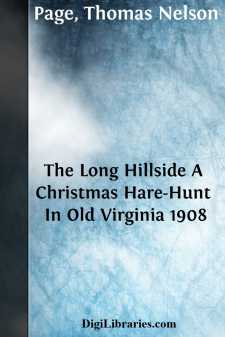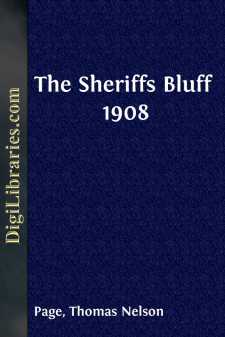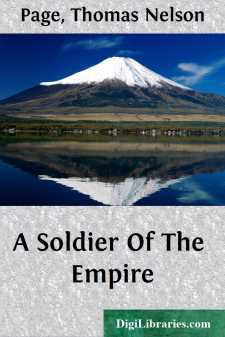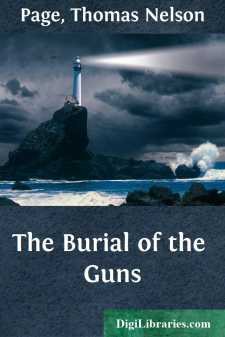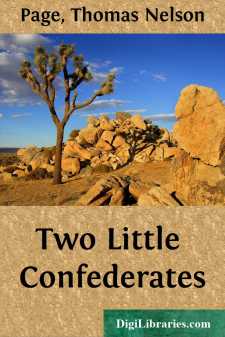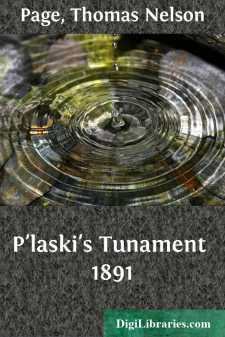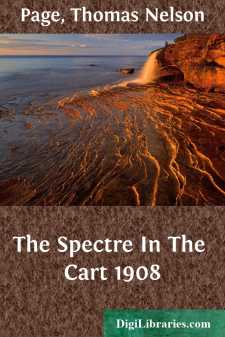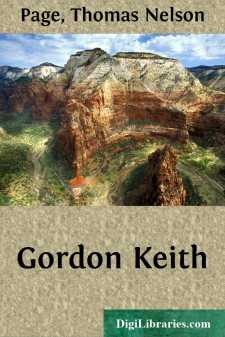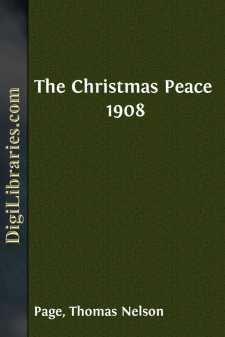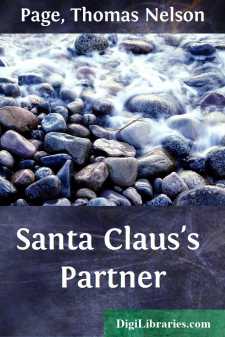Categories
- Antiques & Collectibles 13
- Architecture 36
- Art 48
- Bibles 22
- Biography & Autobiography 813
- Body, Mind & Spirit 142
- Business & Economics 28
- Children's Books 17
- Children's Fiction 14
- Computers 4
- Cooking 94
- Crafts & Hobbies 4
- Drama 346
- Education 46
- Family & Relationships 57
- Fiction 11829
- Games 19
- Gardening 17
- Health & Fitness 34
- History 1377
- House & Home 1
- Humor 147
- Juvenile Fiction 1873
- Juvenile Nonfiction 202
- Language Arts & Disciplines 88
- Law 16
- Literary Collections 686
- Literary Criticism 179
- Mathematics 13
- Medical 41
- Music 40
- Nature 179
- Non-Classifiable 1768
- Performing Arts 7
- Periodicals 1453
- Philosophy 64
- Photography 2
- Poetry 896
- Political Science 203
- Psychology 42
- Reference 154
- Religion 513
- Science 126
- Self-Help 84
- Social Science 81
- Sports & Recreation 34
- Study Aids 3
- Technology & Engineering 59
- Transportation 23
- Travel 463
- True Crime 29
The Long Hillside A Christmas Hare-Hunt In Old Virginia 1908
Categories:
Description:
Excerpt
There do not seem to be as many hares now as there used to be when I was a boy. Then the "old fields" and branch-bottoms used to be full of them. They were peculiarly our game; I mean we used to consider that they belonged to us boys. They were rather scorned by the "gentlemen," by which was meant the grown-up gentlemen, who shot partridges over the pointers, and only picked up a hare when she got in their way. And the negroes used to catch them in traps or "gums," which were traps made of hollow gum-tree logs. But we boys were the hare-hunters. They were our property from our childhood; just as much, we considered, as "Bruno" and "Don," the beautiful "crack" pointers, with their brown eyes and satiny ears and coats, were "the gentlemen's."
The negroes used to set traps all the Fall and Winter, and we, with the natural tendency of boys to imitate whatever is wild and primitive, used to set traps also. To tell the truth, however, the hares appeared to have a way of going into the negroes' traps, rather than into ours, and the former caught many to our one.
Even now, after many years, I can remember the delight of the frosty mornings; the joy with which we used to peep through the little panes of the dormer-windows at the white frost over the fields, which promised stronger chances of game being caught; the eagerness with which, oblivious of the cold, we sped through the garden, across the field, along the ditch banks, and up by the woods, making the round of our traps; the expectancy with which we peeped over the whitened weeds and through the bushes, to catch a glimpse of the gums in some "parf" or at some clearly marked "gap"; our disappointment when we found the door standing open and the trigger set just as we had left it the mormng before; our keen delight when the door was down; the dash for the trap; the scuffle to decide which should look in first; the peep at the brown ball screwed up back at the far end; the delicate operation, of getting the hare out of the trap; and the triumphant return home, holding up our spoil to be seen from afar. We were happier than we knew.
So far to show how we came to regard hares as our natural game, and how, though to be bird-hunters we had to grow up, we were hare-hunters as boys. The rush, the cheers, the yells, the excitement were a part of the sport, to us boys the best part.
Of course, to hunt hares we had to have dogs—at least boys must have—the noise, the dash, the chase are half the battle.
And such dogs as ours were!
It was not allowable to take bird-dogs after hares. I say it was not allowable; I do not say it was not done, for sometimes, of course, the pointers would come, and we could not make them go back. But the hare-dogs were the puppies and curs, terriers, watch-dogs, and the nondescript crew which belonged to the negroes, and to the plantation generally.
What a pack they were! Thin, undersized black-and-tans, or spotted beasts of doubtful breed, called "houn's" by courtesy; long legged, sleepy watch-dogs from the "quarters," brindled or "yaller" mongrels, which even courtesy could not term other than "kyur dogs"; sharp-voiced "fises," busier than bees, hunting like fury, as if they expected to find rats in every tuft of grass; and, when the hares got up, bouncing and bobbing along, not much bigger than the "molly cottontails" they were after, getting in everyone's way and receiving sticks and stones in profusion, but with their spirits unbroken. And all these were in one incongruous pack, growling, running, barking, ready to steal, fight, or hunt, whichever it happened to be.
We used to have hunts on Saturdays, just we boys, with perhaps a black boy or two of our particular cronies; but the great hunt was "in the holidays"—that is, about Christmas....


